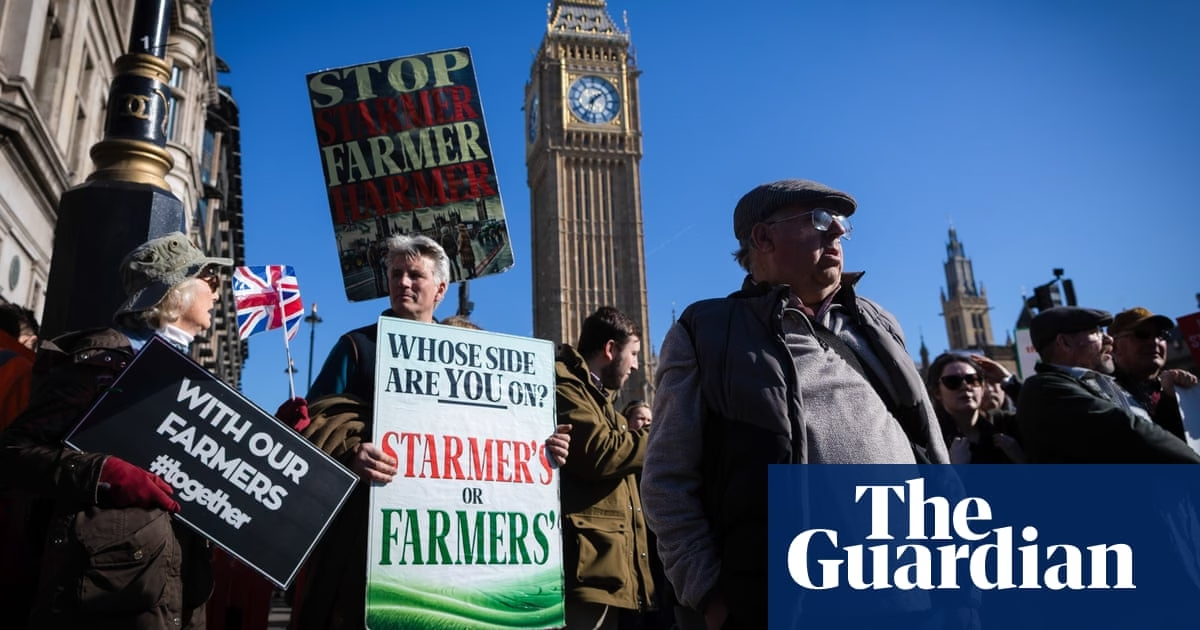Despite improvements in productivity and a shrinking workforce, the incomes of farmers have remained unchanged since the 1970s, according to recent research. This stagnation is attributed to declining prices for farm products, which have been influenced by the UK’s increasing reliance on imports, the dominance of supermarkets in the grocery sector, and a rise in the consumption of ultra-processed foods, as indicated by the Food, Farming and Countryside Commission.
Over the past five years, the average farmer’s income has been approximately £32,272, adjusting for inflation, this figure is equivalent to income levels in the mid-1970s. Concurrently, the economy has grown, and wages in other sectors have risen in real terms. Farmers have recently protested against the government’s introduction of inheritance tax on their assets, which they argue will force them to sell their lands due to insufficient income from their farms. This situation is exacerbated by the 18 wettest months on record and the end of EU farming subsidies.
The report warns of the “extreme consolidation” in the supply chain of products like animal feed, fertilizer, and tractors, which is controlled by a few large companies. This situation leaves farmers with little bargaining power, causing difficulties for small firms and allowing large corporations significant influence over government policies, thereby contributing to the dysfunction of the food system.
The authors of the report emphasize that the country’s dependency on larger farms and a few significant businesses poses risks to food security and resilience, particularly in the face of climate change and geopolitical instability. To address these issues, the report recommends that the government establish core standards in trade deals regarding the environment, health, and animal welfare which align with domestic farming policies. Additionally, it suggests the establishment of a food market regulator with a public value mandate and the prioritization of spending on sectors such as fruits, vegetables, and pulses.
Environment Secretary Steve Reed has acknowledged the inadequacy of farmer compensation and pledged to publish a 25-year farming plan focused on “supply chain fairness,” ensuring farmers receive fair pay for their produce. The report argues that the falling food prices, associated with the stagnant farmer incomes, come at a cost to public health, farming communities, wildlife, and the UK’s long-term ability to feed itself. Furthermore, the report highlights how the supply chain has become highly consolidated, with a few firms dominating markets for beef, milk, feed, and tractors, thus reducing farmers’ ability to negotiate better prices.
Source: https://www.theguardian.com/environment/2025/mar/13/uk-farmers-incomes-stagnant-since-the-1970s-report-finds








